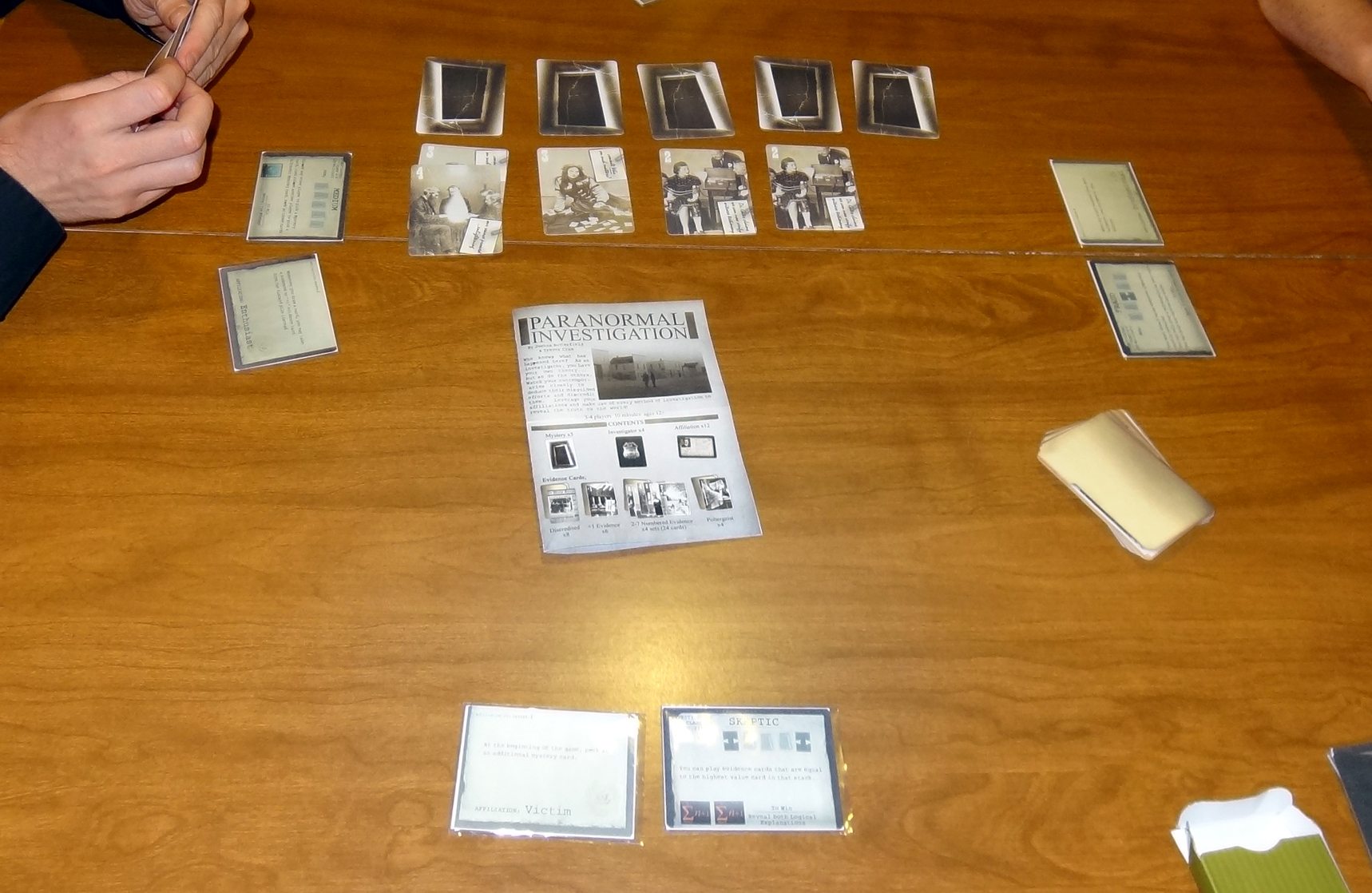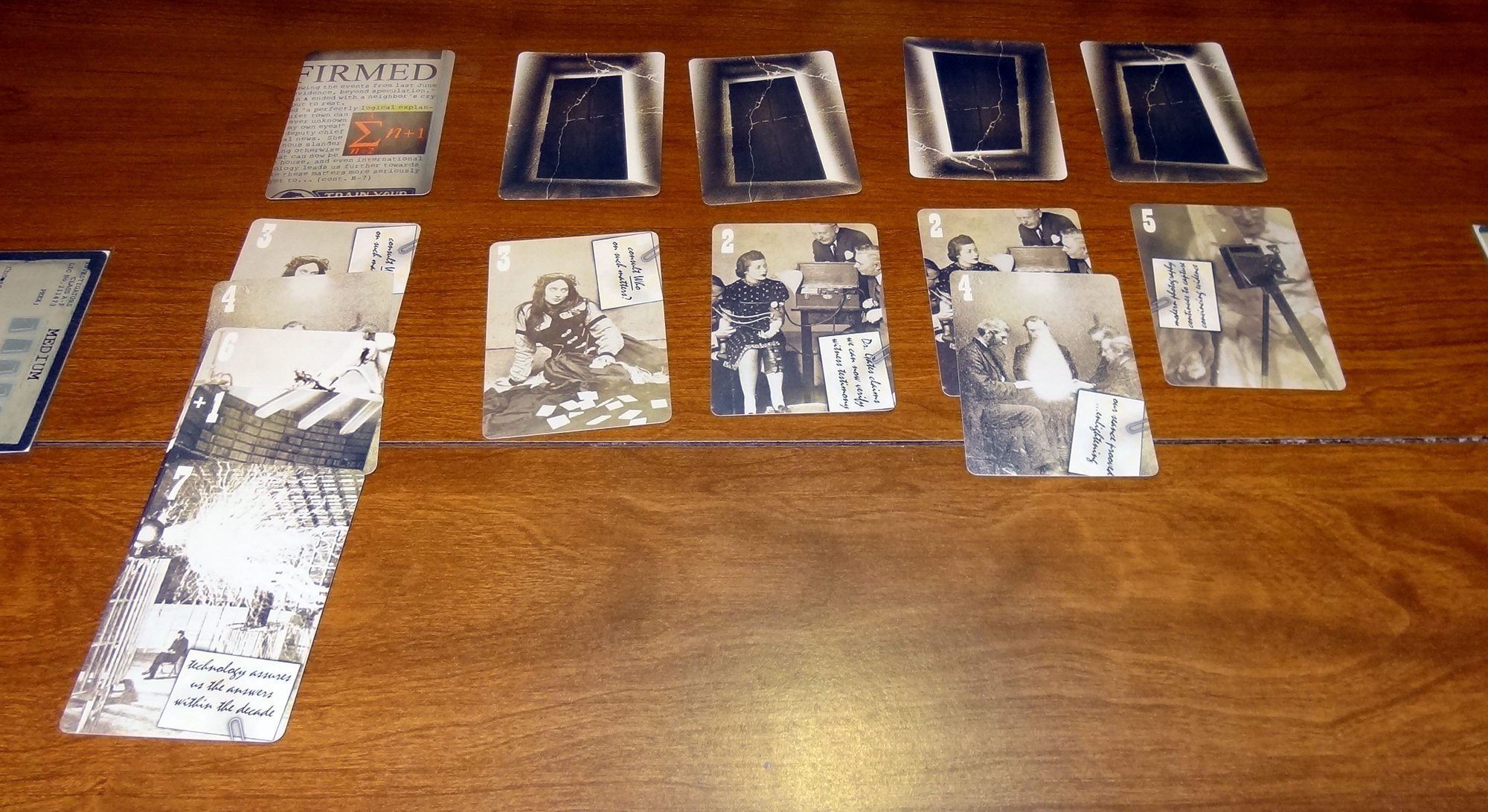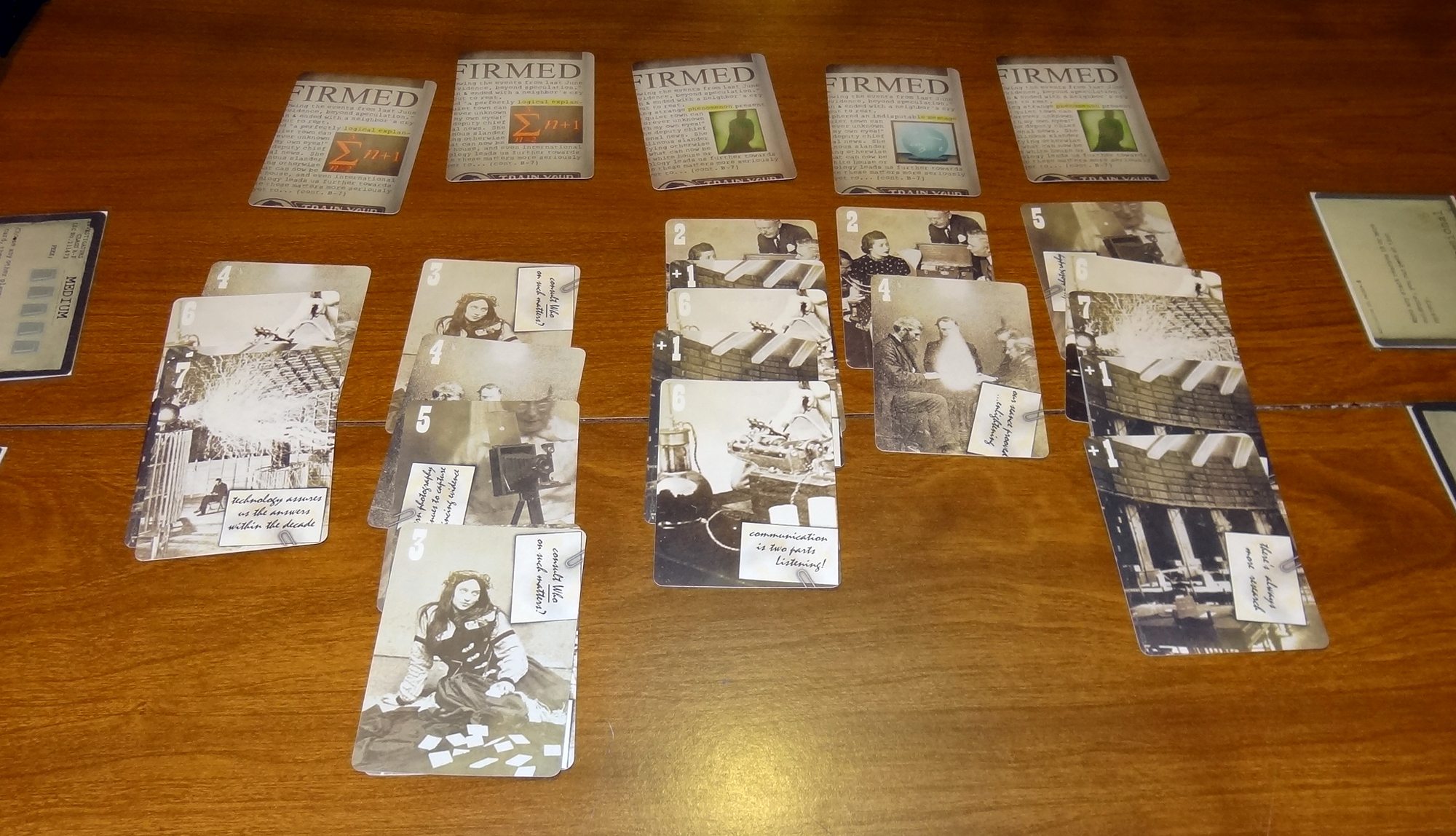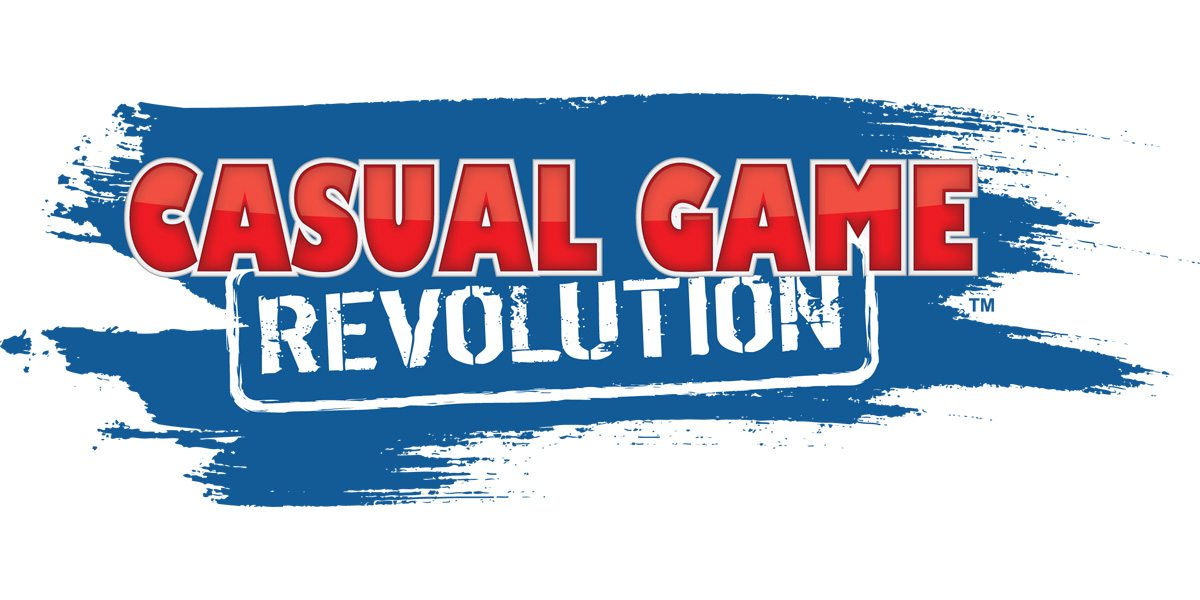When there’s something strange in the neighborhood, who ya gonna call? The Paranormal Investigators, of course. Paranormal Investigation is a card game about digging into mysteries to prove your own theories correct, while discrediting your contemporaries. It only has about a day left on Kickstarter, so I’ll keep this brief!
At a glance: Paranormal Investigation is for 3 or 4 players, ages 12 and up, and takes about 10 minutes to play. The base pledge level for a copy of the game is $15. I think somewhat younger kids may be able to track the rules, but the strategy involves deception and reading your opponents, so it may be harder for them to compete.

Components: The game is entirely cards:
- 5 Mystery cards
- 4 Investigator cards
- 12 Affiliation cards (subject to change based on stretch goals)
- 8 Discredited cards
- 6 “+1” Evidence cards
- 24 Numbered Evidence cards
- 4 Poltergeist cards
The artwork is mostly turn-of-the-century photographs with a few things made to look like newspaper excerpts, which gives it a fun feel. I played a prototype version so I have not seen the final card quality; however, Touch Paper Press has published two other games, Super Showdown and Woe to the Living, and the quality of those has been pretty good.

How to play:
There are 5 Mystery cards, which are shuffled and laid out on the table—these include 2 Logical Explanations, 2 Phenomena, and 1 Message. Each player gets a different Investigator card, which has its own goal to win. The Skeptic wants to reveal the logical explanations, the Believer wants to find the phenomena, the Medium is looking for the message, and the Fraud just wants to stir the pot (and wins by getting rid of all their cards).
Each player also gets an Affiliation card at random, which gives them a special ability (and sometimes restrictions). The Investigator and Affiliation cards are placed face up so everyone can see them. Each of the Investigators also gets to peek at some of the Mystery cards, giving a little bit of information to start. All of the Evidence cards (including the Poltergeists and Discredited cards) are shuffled together, and each player gets a hand of 7 cards.

On your turn, you either play 1 card or draw 2 cards. Evidence cards are played below any of the Mystery cards. Numbered cards (2 through 7) may only be played if they have a greater value than the largest card already in the stack. +1 cards may be played on any stack without restriction. Discredited cards allow you to discard the top card of any stack.
If the total evidence on a stack reaches 20 or more, then you reveal the Mystery card by turning it over, and no more cards may be played there.
Poltergeist cards can be played at any time, do not count as your action, and then everybody passes 3 random cards either right or left (chosen by the player who played the Poltergeist).
The game ends when any Investigator reaches their goal. Or, if the last deck is drawn and nobody has won yet, then reveal Mysteries with the highest total evidence until somebody wins.

The Verdict
I got a prototype of the game to try, but it arrived at a bad time when I missed several weekends for games and I only got a chance to play it a few times with three players, so my investigation is still a little inconclusive. The core idea seems pretty solid—I like the theme and the way the investigators have their own missions. The back-and-forth of playing evidence and having it discredited isn’t very deep strategy, but fits the theme.
The Affiliation-Investigator combinations are pretty fun, too. For instance, the Military allows you to play an extra 6 card on your turn, which can help reveal Mysteries more quickly. The Enthusiast lets you draw cards from the discard pile instead. The Victim gets to peek at an extra Mystery card at the beginning of the game.
The one problem we ran into was that the Fraud seemed a little unbalanced, at least in a three-player game. The Skeptic and Believer each have to reveal two cards, the Medium only has to reveal one, and the Fraud just needs to run out of cards. To balance this somewhat, the Skeptic and Believer each get to peek at two cards, the Fraud peeks at one, and the Medium peeks at two but they are chosen by two different players. There’s definitely some strategy in which cards to reveal to the Medium, I think, but we haven’t played enough to get that.
With only three players, however, the Fraud can simply spread out their Mystery cards among the Mysteries that the other two players aren’t trying to reveal, and then use “Discredited” cards to slow down the Medium, if there is one. The only tactics we could come up with to fight this were to work together to reveal a Mystery quickly—but revealing the Message would result in an instant win for the Medium, so that wasn’t great. The other tactic was to play Poltergeists when the Fraud was down to his last card, because then we could hand him three more, but that only works if you can manage to draw Poltergeists, and there are only 4 in the entire deck.
Playing without the Fraud in a three-player game seemed a little more balanced, but this time there was a slight advantage to the Medium, especially if they could figure out which of the five cards was the Message early on. This is where I think some more experience playing the game could result in more misdirection from the other players, to make the Medium waste some cards on other Mysteries.
Overall, I think Paranormal Investigation is promising. It’s a quick game, and I do like asymmetric roles and powers—the question is how balanced the game really is, which I can’t tell after only a few plays. I do think four players would make it more interesting, too. The artwork and theme are fun, and it’s pretty inexpensive.
For a closer look, investigate the Kickstarter page yourself. But be quick! This phenomenon will evaporate on Sunday afternoon!
Disclosure: GeekDad received a demo prototype of this game.




